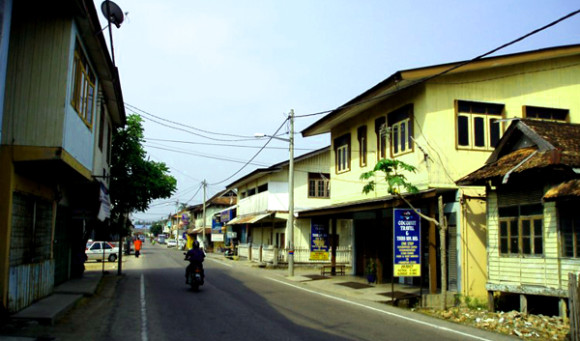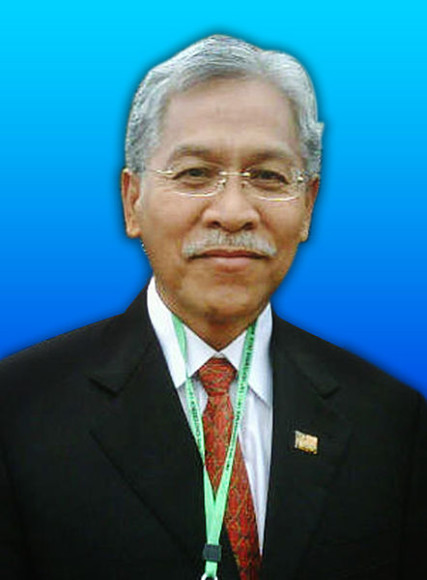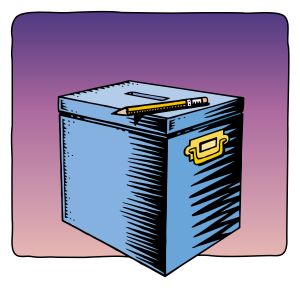
VOTERS in the Kuala Besut state constituency of Terengganu will go to the polls again on 24 July 2013, just two days away. A by-election is being held following the death of the incumbent Umno assemblyperson Dr A Rahman Mokhtar from lung cancer.
This is the first by-election that is being held since the 5 May 2013 general election. And it will be a straight fight between Umno’sTengku Zaihan Che Ku Abd Rahman and PAS’s Azlan Jusoh.
The Nut Graph speaks to political scientist Dr Wong Chin Huat about the chances of PAS winning this by-election and the implications for either an Umno or PAS victory.
What are the issues that have been raised in the Kuala Besut by-election? Is the mood different now, compared with the recently concluded 13th general election since Independence (GE13)?
This by-election has both local and state/national issues. The local issues include the awarding of lands to four Barisan Nasional (BN) state assemblypersons, sympathy for the late incumbent, and how connected the candidates are to the locals. However, the dominant issue would likely be the by-election’s national and state implications.

The mood is much calmer compared to during GE13. It is clearly different for two reasons. First, the by-election is occurring during Ramadan. From a technical perspective, ceramah time is reduced to only 90 minutes, between the special Ramadan prayers after Muslims break their fast, and midnight, when all ceramah must end.
Secondly, there is still election fatigue. It has only been two months since GE13 and the country was in election mood for almost five years after GE12.
Will voters vote differently in a by-election compared with a general election? If yes, when has this happened before?
It’s entirely possible for voters to vote differently in a by-election. Firstly, this would be because voters’ options are clear since the outcome in all other constituencies is already known. Secondly, the national mood may have changed over time. Thirdly, the Hawthorne Effect, where voters feel important because the whole nation is watching them, may change one’s preference.
However, this does not happen frequently. In the 16 by-elections from 2008 to 2011, only four saw the incumbent party losing – PAS taking Kuala Terengganu from Umno, MIC wresting Hulu Selangor from PKR, DAP defeating SUPP in Sibu, and Umno beating PAS in Galas.
With a 99% Malay Malaysian electorate, Umno has won Kuala Besut in all 13 general elections except in 1959, 1969, 1974 and 1999. During GE13, Umno defeated PAS with a margin of 2,434 votes or 16% of the total valid votes. If PAS can cause an upset this time, it would be an earthquake not just for Terengganu politics, but also Malaysian politics.
What will it take for PAS to win the seat?

Assuming all other things are equal, PAS will need to swing 8% or some 1,200 votes to overturn the GE13 result. This will likely require some internal sabotage within Terengganu Umno.
Losing Kuala Besut would be a big blow to current Menteri Besar Datuk Seri Ahmad Said. PAS is, in fact, hoping that the enmity between Ahmad and his arch-rival Datuk Seri Idris Jusoh, a former menteri besar who is now Education Minister II, can influence voters to vote against the Umno candidate.
However, the situation is tricky since Idris is the parliamentarian and Umno division chief for Besut, of which Kuala Besut is a part. Hence, an Umno defeat in Kuala Besut would reflect badly on Idris, too.
Like Ahmad, someone in Putrajaya stands to lose, too, if Umno is beaten in Kuala Besut: Datuk Seri Najib Razak. A PAS victory in a 99% Malay constituency would be seen as the Islamist opposition party and Pakatan Rakyat (PR) winning ground among the Malays. It would mean a total collapse of Najib and Umno’s “Chinese tsunami” narrative.
Umno Youth chief Khairy Jamaluddin’s call to voters to ensure an Umno victory so that Najib’s position is not threatened is particularly interesting. Khairy, of course, does not tell the whole story. Should Umno lose, Najib will see knives coming out not in Parliament, but in the upcoming Umno assembly. Just as Datuk Seri Anwar Ibrahim’s victory in the Permatang Pauh by-election quickened Datuk Seri Abdullah Ahmad Badawi’s exit as prime minister, Kuala Besut can do the same for Najib. PAS may, therefore, be hoping for help from Najib’s enemies.
On the chance that PAS wins this by-election, this will result in a hung state assembly in Terengganu, with both BN and PR having 16 seats each in the 32-seat state assembly. Will we see a change of government?
If that happens, some believe it would then depend on the palace’s preference. In my opinion, the sultan can only choose the candidate when there is a vacancy. Once appointed, a menteri besar can only be removed via resignation or a vote of no-confidence. Because the BN-appointed speaker can tip the balance when there is a tie, it will be a 17-16 close-call for Umno even if PAS tries to force a vote of no-confidence.
However, Terengganu Umno will be significantly weaker. Party alternation may happen if any of the BN lawmakers in the state assembly defect, or if there is another by-election that results in Umno’s defeat.
DAP national chairman Karpal Singh has proposed that the Election Commission (EC) ensure all states and Parliament have an odd number of seats so that a hung assembly or parliament isn’t possible. What do you think of this proposal?

Odd-numbered legislatures are actually rare in Malaysia. They are found only in Perlis, Kelantan, Perak and Sarawak. Besides the Terengganu legislature, the Federal Parliament (with 222 seats) and eight out of 12 other state legislatures all have even numbers of seats. Penang has 40 seats, Kedah 36, Pahang 42, Selangor 56, Negeri Sembilan 36, Malacca 28, Johor 56, and Sabah 60.
This happened because the federal and state executives have been trapped in their one-party state dream and never considered the possibility of a hung legislature. We may expect the EC to propose an odd number of seats for all legislatures. But technically, the number of seats is actually decided by the legislatures themselves. In this sense, Karpal’s idea can be implemented first by the states of Penang and Selangor, where the PR rules.
Why did Umno’s Datuk Tajuddin Abdul Rahman, who is a deputy minister, warn Kuala Besut voters that a win for PAS means a win for DAP, and that this would result in Karpal becoming Malaysia’s first president? How effective are these tactics in swaying voters?
Tajuddin’s statement made me wonder what he was on. Kuala Besut is not even a parliamentary seat. Even if PAS wins the by-election and wrests state power, how can that lead to Malaysia becoming a republic? The demonisation of DAP and fear-mongering seems to have reached a surreal level.
Will that swing the Malay votes? Even though Kuala Besut is a mono-ethnic rural constituency in Terengganu, I doubt so. I only wonder if some Umno politicians are completely consumed by their own propaganda and what fantasy they will come up with next.
How will this election affect national politics? How important is this by-election in the greater scheme of much-needed electoral reforms and the BN government’s legitimacy post-GE13?

The by-election may break a prime minister. Should Umno lose this safe seat, ousting Najib will look ever more legitimate. At the same time, both PAS and PR will be encouraged by a victory in the Malay heartland. Also, the public pressure for electoral reform may mount again. In desperation, Najib may be forced to make some compromises. An Umno victory with a wafer-thin margin will have a similar effect.
What if Umno wins convincingly? The party will read it as success of its ultra-Malay positioning. We will see more fireworks in Utusan Malaysia. Credit, however, may not go to Najib, and whether he will face challenges within Umno will perhaps then depend on Tun Dr Mahathir Mohamad, who is still viewed as an active mover and shaker within the party.
A convincing Umno victory may, however, break PAS. Party hardliners may declare that the moderates’ “PAS for all” line has cost the party the support of its core constituency. If the hardliners wipe out the moderates in their year-end muktamar, PAS will likely return to its ethnic flank position. The survival of the five-year-old PR may then be a question mark.
In terms of electoral reforms, the EC clearly does not dare use edible ink as indelible ink in this by-election. ![]()
Wong Chin Huat is a political scientist by training and was a journalism lecturer prior to joining the Penang Institute, a Penang government think tank. If readers have questions and issues they would like Wong to respond to, they are welcome to e-mail editor@thenutgraph.com for our consideration.
Read previous Uncommon Sense columns

